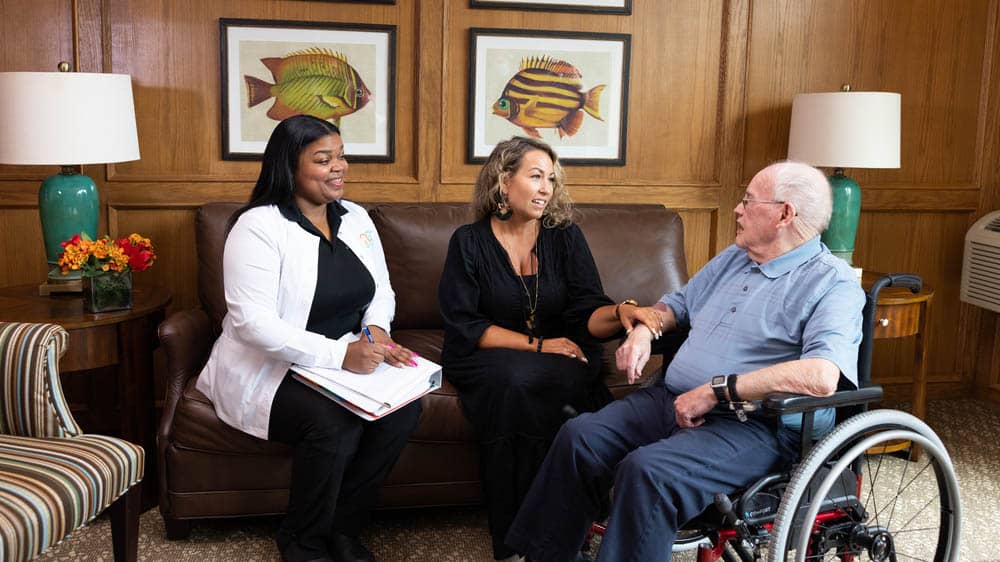

Self-Care for Family Caregivers
It might seem outrageous to list caregiving as a major public health issue; however, you may be surprised to learn that it is. According to the Centers for Disease Control and Prevention, “caregivers are at increased risk for having multiple chronic diseases as they may neglect their own personal health needs while providing care to others.” Additionally, caregivers tend to have lower levels of self-care and preventive health behaviors, due primarily to the time and energy they expend in their role and the stress and exhaustion that result from it.
The good news if you are a caregiver? By filling your toolbox with self-care practices that can be implemented anywhere—including while working from home during a pandemic—you can increase your quality of life and lower your risk of serious physical and mental health issues.
Create Boundaries
In order to take care of yourself properly, it is imperative to set clear boundaries. This is especially true while working from home, where there is no physical separation between work life and home life. Start by making a list of ways in which you can create more space for yourself. For example, if you typically jump right into your caregiving duties after finishing your work for the day, you might want to build in an hour of exercise first, or make a phone call to a close friend.
However you decide to create your boundaries, the key is figuring out ways to actually uphold them. Boundaries can bring up upsetting feelings or be guilt-inducing to some caregivers, but allowing your needs to be met can ease stress, prevent resentment from building, and create healthier relationship dynamics between you and the person you’re caring for.
Maintain a Healthy Diet and Exercise Routine
You can’t expect to be able to sustainably care for anyone if you’re neglecting your physical health. Caregivers generally experience increased rates of chronic pain, diminished immune response, and a higher risk of developing serious illnesses, so if you are a caregiver, make caring for your own physical health a top priority to ensure your ability to care for your loved one.
Set aside time each week to plan and prep your meals, making it that much quicker and easier to throw a healthy dinner together on a busy evening. In between meals, munch on nutritious snacks like nuts, fruits, or veggies with hummus; the fuel from these will keep you going for much longer than sugary and starchy snacks. Try to work some movement into your day, too. Take a quick walk to get the blood flowing, or experiment with simple yoga poses for a gentle but effective way to stay active.
Schedule “Me Time”
While taking time for yourself might always be top of mind for you, chances are, if you don’t schedule it into your routine, it’s probably not going to happen. Though you may feel silly penciling “me time” into your calendar, it’s a helpful way to stay accountable to the most important person in your life: you.
Put the appointment in whatever notebook or device you use for your scheduling—and keep it. If you need to, pretend it’s a meeting with someone you’d never want to let down. Caregiving is extremely draining, and you’ve got to recharge your batteries. Taking time for yourself isn’t selfish—it’s necessary.
Journaling and Meditation
Because of the stressful and emotionally intense nature of the role, caregivers are at an increased risk of experiencing mental health challenges. Studies have shown that 40% to 70% of caregivers experience symptoms of depressive illness, with 25% to 50% falling into the category of major depression. This means that it’s vital to take care of your mental health when caring for a loved one.
Both journaling and meditation are quick, inexpensive and effective ways to do just that. Journaling allows for a space to vent, process and release difficult emotions. And meditation has been proven to provide many powerful health benefits, including better stress management, lower levels of anxiety, a more positive outlook, better sleep, and a decrease in blood pressure and chronic pain.
Caregiving is one of the most stressful roles one can take on. By being proactive about your own well-being and engaging in regular self-care, you’re far more likely to stay healthy, happy and resilient—even when the going gets rough.







